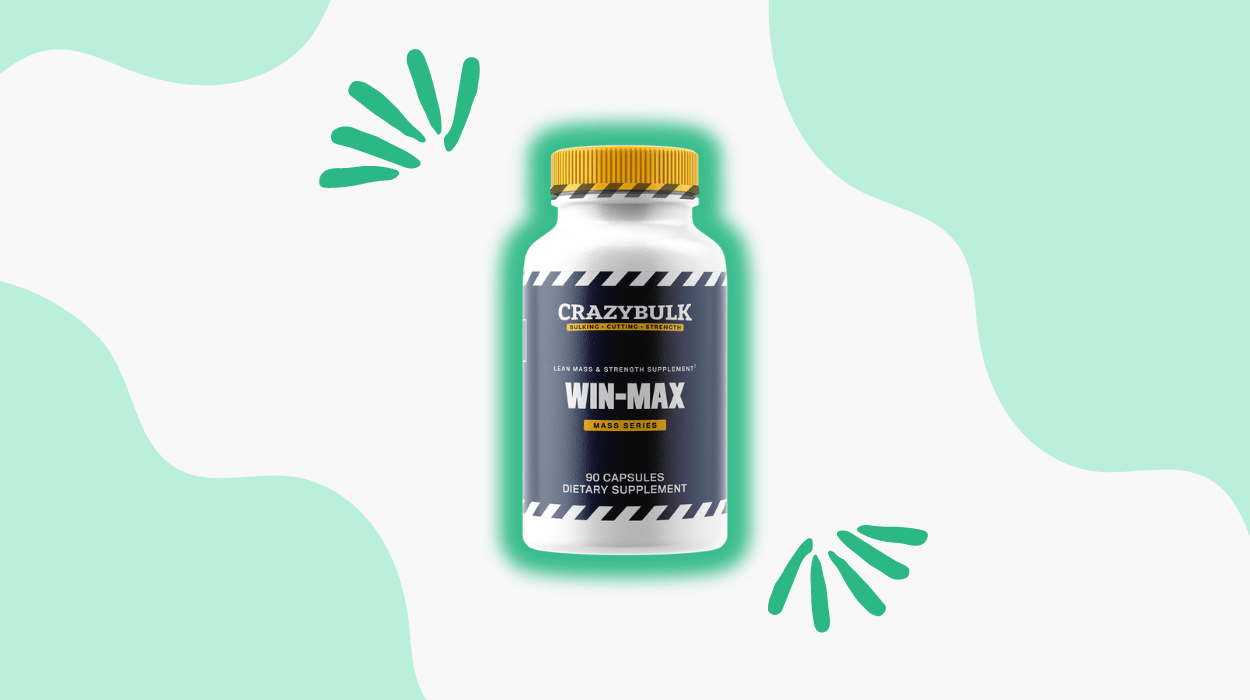Read Time:11 Minute, 23 Second
The transition to parenthood is a big life-changing event, and it’s normal to feel anxious about all the new challenges.
For new moms, taking care of a baby while dealing with changes in hormones, lack of sleep, and pressure from society can make things even more stressful.
Postpartum anxiety (PPA) is a big deal but often gets overlooked. It’s something we should pay attention to.
A lot of new moms might experience anxiety symptoms, like worrying a lot and feeling overwhelmed, no matter how they gave birth.
Taking care of postpartum anxiety is really important for helping new moms and their families stay healthy and happy.
What Is Mom Anxiety?
Mom anxiety is when a mom feels worried or stressed about things related to being a parent. This could be about taking care of their child, how they’re doing as a mom, or dealing with all the responsibilities of family life. It’s something a lot of moms feel and can be caused by different things like hormones and pressure from society.
- Genetics: Sometimes, traits passed down from family can make moms more prone to feeling stressed or anxious.
- Hormones: Changes in hormones, especially during pregnancy and after childbirth, can make moms feel more anxious and overwhelmed.
- Societal Expectations: Pressures from society about how moms should act or what they should do could make them feel like they’re falling short, which might lead to anxiety.
- Responsibilities of Caring for Children: Looking after kids is a big job, and worrying about their well-being could always add to mom’s stress.

Symptoms Of Mom Anxiety
-
Emotional Symptoms
Mom anxiety could manifest in various emotional ways, impacting a mother’s mental well-being and daily life. Here are four key emotional symptoms commonly associated with mom anxiety:
- Overwhelming worry: Moms experiencing anxiety may find themselves consumed by persistent concern about their children’s well-being, safety, or future. This state of apprehension could be mentally draining and emotionally exhausting.
- Feelings of irritability: Irritability is a common emotional symptom of mom anxiety. Mothers may become easily agitated, snapping at loved ones or feeling on edge without a clear cause. This heightened irritability could strain relationships and add to the emotional burden.
- Forgetfulness: Anxiety could lead to cognitive difficulties such as forgetfulness or memory lapses. Moms may struggle to focus, organize thoughts, or remember important tasks, which may contribute to feelings of incompetence and stress.
- Obsessive thoughts and fears: Mom anxiety could trigger obsessive and irrational thoughts or fears. Mothers may fixate on unlikely scenarios, constantly seeking reassurance or engaging in repetitive behaviors.
-
Physical Symptoms
Some of the physical symptoms related to mom anxiety are:
- Sleep issues: Trouble sleeping is a prevalent physical symptom of mom anxiety, as the mind races with worries and fears, making it challenging to relax and fall asleep. This lack of restorative sleep could contribute to fatigue and irritability during the day.
- Not feeling hungry: Loss of appetite is another common physical sign, where stress and anxiety may lead to a decreased interest in food or disruptions in normal eating patterns.
- Restlessness: Mom’s anxiety may manifest as the inability to sit still, restlessness, and feelings of unease, making it hard to concentrate or relax.
- Urge to vomit: Nausea or vomiting may occur due to the heightened state of anxiety, impacting the mother’s ability to nourish herself properly.
- Uneven heartbeat: Increased heart rate could be a physical response to the perceived threat or stress regarding being a mom.
-
Behavioral Symptoms
Mom anxiety can affect how a mom behaves and interacts with her world. Here are some common signs:
- Avoidance: Moms might start avoiding certain places, people, or activities that make them feel anxious. This might lead to feelings of loneliness and make anxiety worse.
- Being extra cautious: Moms might become overly worried about everyday things, like making decisions or doing things right.
- Needing control: Some moms with anxiety feel like they have to control everything about their child’s life to feel less stressed. This can make it hard for them to ask for help or let others take over.
- Checking things repeatedly: Moms might constantly check on things, like if their baby is breathing, because they’re scared something bad will happen if they don’t. This can be exhausting and take up a lot of time.”
Types Of Mom Anxiety
-
New Mom Anxiety
The leap into motherhood may lead to changes in relationships, routines, and beliefs, causing significant adjustments that may trigger anxiety.
This aspect of new mom anxiety, if excessive, might hinder daily functioning with symptoms like persistent worry and nervousness after childbirth or adoption.
Moms with a history of anxiety or substance use, as well as those who have had a challenging pregnancy or baby in the ICU, may be more susceptible to experiencing postpartum anxiety.
Research indicates that around 8.5% of postpartum mothers encounter anxiety disorders. Untreated anxiety could affect the mother-infant relationship and impact infant outcomes if not addressed promptly.
-
Working Mom Anxiety
Given the unique challenges and complex dynamics faced by working mothers, the juggling act of balancing career aspirations with parenting responsibilities often leads to heightened levels of anxiety.
The following points shed light on the specific stressors faced by working moms:
- Guilt and Fear of Judgment: Working moms often feel guilty about not spending enough time with their children and fear being judged by others for their choices.
- Work-Life Balance Struggles: The constant struggle to maintain a harmonious balance between work commitments and family responsibilities could be overwhelming and contribute significantly to anxiety levels.
- Time Management Pressures: The pressure to efficiently manage time to meet professional obligations and family needs may also create a sense of being constantly stretched thin and increase anxiety.
-
Stay At Home Mom Anxiety
The constant responsibility of managing the household and caring for children without breaks could be overwhelming and draining.
Stay-at-home moms face unique challenges that may lead to feelings of isolation, lack of self-worth, and financial concerns.
Financial worries and the absence of adult interaction could further worsen anxiety in stay-at-home moms. The lack of external validation and the feeling of being solely responsible for the well-being of the family could weigh heavily on one’s mental health.
For some stay-at-home moms, the decision to stay home may not have been entirely voluntary, adding an extra layer of stress.
Best Coping Strategies For Mom Anxiety
Below is a table outlining some of the best strategies to cope with mom anxiety:
| Coping Strategy |
Description |
| Strengthening Social Support |
Building a network of friends, family, or support groups may provide emotional reassurance and practical help. |
| Practicing Relaxation Techniques |
Activities like deep breathing, meditation, or yoga might help reduce physical tension and promote calmness. |
| Engaging in Mindfulness Activities |
Including mindfulness practices in daily routines could help manage anxiety and stress effectively. |
| Seeking Therapeutic Interventions |
Consulting a therapist or counselor may provide professional guidance and support in dealing with mom anxiety. |
| Establishing Self-Care Routines |
Prioritizing self-care activities such as hobbies, exercise, or relaxation might help maintain mental well-being and reduce anxiety. |
-
Muscle Relaxation Techniques
Practicing muscle relaxation techniques could be a beneficial strategy for alleviating built-up tension and promoting relaxation amidst the daily stressors faced by mothers.
Muscle tension often accumulates due to the constant perceived threats and high levels of stress that mothers experience.
Research indicates that actively engaging in muscle relaxation may help alleviate anxiety by inducing a state of physical calmness.
One effective method is Progressive Muscle Relaxation, which progressively tightens and releases muscle groups while seated or lying down.
Systematically moving through different muscle groups from top to bottom releases tension and promotes relaxation.
The Body Scan technique could also be helpful, especially at bedtime. Closing your eyes and mentally scanning the body from head to toe may identify areas of tension and actively relax those muscles.
-
Mindfulness
Mindfulness activities might help mothers focus on the present moment, letting them go of worries. Engaging in mindfulness practices could create a sense of calm and inner peace.
Here are four creative mindfulness activities that may assist mothers in managing anxiety and stress:
- Mandala Coloring: Coloring mandalas might be a calming and therapeutic experience, promoting focus and relaxation.
- Breathing Exercises: Mindful breathing techniques may help mothers center themselves and alleviate tension and anxiety.
- Nature Walks: Connecting with nature through mindful walks could bring a sense of serenity and grounding, allowing mothers to recharge mentally and emotionally.
- Journaling: Writing down thoughts, feelings, and reflections could help mothers process emotions, gain clarity, and cultivate self-awareness.
-
Build Strong Social Support
Building a solid support system may provide emotional reassurance and practical help, making a significant difference in managing anxiety. Here are four key ways in which increasing social support may benefit mothers:
- Emotional Support: Having friends, family members, or support groups to lean on during challenging times might provide comfort and understanding. Sharing feelings and experiences with others may help reduce loneliness and isolation.
- Practical Assistance: Social support could offer practical help, such as watching the children for a few hours, running errands, or providing a listening ear. This support may lighten the load for mothers and allow them to focus on self-care.
- Validation and Encouragement: Being surrounded by a supportive network could validate a mother’s feelings and experiences, boosting self-esteem and confidence. Encouraging words and affirmations from others may also help combat negative self-talk and feelings of inadequacy.
-
See A Therapist
Therapy could be a safe space to explore and understand anxiety, develop coping strategies, and work towards positive changes.
A therapist specializing in mom anxiety could offer valuable tools, insights, and support tailored to your unique needs and situation.
Research indicates that mothers experiencing anxiety may face challenges in their relationship with their children. Seeking therapy supports your mental well-being and enhances the quality of your interactions with your kids.
Side Effects Of Mom Anxiety
Factors contributing to mom anxiety may vary, with certain risk factors potentially increasing the likelihood of experiencing heightened anxiety levels.
These risk factors include:
- Personal or Family History of Anxiety: Women with a history of anxiety disorders, whether through personal experience or within their family, could be more predisposed to developing mom anxiety.
- Symptoms of Premenstrual Syndrome (PMS): Certain symptoms of PMS, like heightened emotional sensitivity or mood swings, may be indicators of increased susceptibility to mom anxiety.
- History of Eating Disorders or OCD: Past struggles with eating disorders or obsessive-compulsive disorder (OCD) might also contribute to the risk of having anxiety as a mom.
- Previous Experience with Depression: Women who have previously dealt with depression could be at a higher risk of developing mom anxiety, as the two conditions can often be interconnected and worsen each other.
Frequently Asked Questions
- How Can a Partner Effectively Support a Mom Experiencing Anxiety?
Active listening, offering reassurance, validating feelings, and encouraging professional help is critical to supporting a loved one experiencing anxiety. Building trust, showing empathy, and promoting self-care may also help in their journey towards improved mental well-being.
- Are There Specific Cultural Factors That Can Influence Mom Anxiety?
Societal norms, family expectations, and cultural beliefs around motherhood are some of the cultural factors that might impact a mother’s mental health.
- Can Mom Anxiety Impact the Relationship Between a Mother and Her Child?
The relationship between a mother and her child could be significantly impacted by mom anxiety. Elevated stress levels, reduced emotional availability, and difficulty in bonding may arise, affecting both the mother and the child.
- What Role Does Hormone Fluctuation Play in Exacerbating Mom Anxiety?
Variations in hormone levels, like cortisol and adrenaline, during postpartum periods could contribute to increased feelings of anxiety and stress.
- How Can Moms Differentiate Between Normal Parenting Worries and Symptoms of Anxiety?
Mothers should assess the intensity, persistence, and impact of worries on daily functioning to distinguish between usual parenting concerns and anxiety symptoms. Seeking professional guidance, tracking symptoms, and practicing self-awareness are vital in recognizing and addressing anxiety.
Conclusion
Mom anxiety is a common challenge that many moms face. It’s when moms feel overwhelmed and worried about being a parent, managing daily responsibilities, and meeting societal expectations. This anxiety might have a significant impact on their mental health and well-being.
However, there are steps moms can take like setting boundaries, getting support from friends and family, practicing self-care activities, and sometimes seeking professional help like therapy.
We can help moms work through their challenges and feel more confident and capable in their roles as parents by recognizing the signs of mom anxiety and offering constant support.
Disclaimer
- The information in this article is for informational purposes only and should not be considered medical advice.
- It is not recommended to disregard/delay seeking professional medical advice or treatment because of what you read or accessed through this article.
- The results may vary from individual to individual.
- It is recommended to consult your doctor for any underlying medical conditions or if you are on any prescribed medicines before trying any tips or strategies.

Happy
0
0 %

Sad
0
0 %

Excited
0
0 %

Sleepy
0
0 %

Angry
0
0 %

Surprise
0
0 %
Tyler Read earned an undergraduate academic degree from Sonoma State University, California and is a certified personal trainer (CPT) with NASM (National Academy of Sports Medicine). With over 16 years of experience, Tyler has trained clients both online and in-person.
He is passionate about helping others turn their love for fitness into a career. Tyler has worked with many local and commercial gyms before establishing his successful private personal training business, which he continues to operate.



